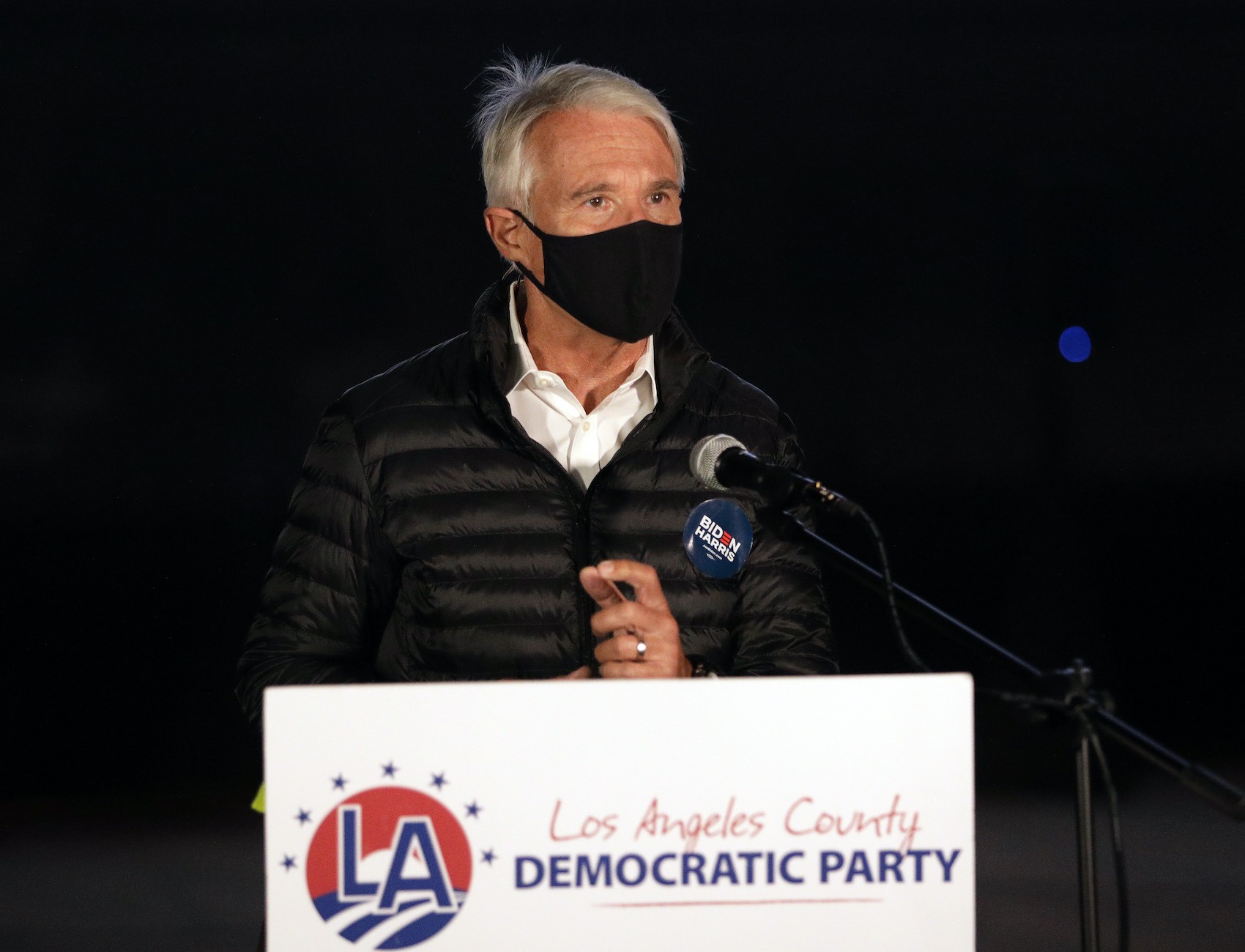Newly Elected Los Angeles DA Will End Cash Bail in Nation’s Largest Prosecutor Office
On his first day in office, George Gascón said prosecutors will not seek bail starting Jan. 1, a win for criminal justice reformers.

Los Angeles County’s new district attorney George Gascón used his first day in office to announce wide-ranging progressive policy changes, including an end to the use of cash bail, in a major victory for proponents of criminal justice reform.
Over the next few weeks, prosecutors cannot seek bail in misdemeanor and non-violent felony cases, Gascón said during his inauguration speech on Monday. And cash bail will be completely eliminated by January 2021.
“We know that our system of money bail is as unsafe as it is unjust. The rich can be dangerous while the poor can pose zero threat to society,” Gascón said. “Today there are hundreds of people languishing in jails not because they represent a danger to our community, but because they can’t afford to purchase their freedom.”
The policy change affects a county that includes over 10 million people and whose notoriously overcrowded jail system is the largest in the nation. The reform will also affect people currently held in pretrial detention, meaning they have not been convicted of a crime. Gascón said hundreds of people will be eligible for release starting tomorrow and defense attorneys can immediately schedule a court hearing to request bail be withdrawn.
Cash bail, which requires that people in jail pay for their release while awaiting trial, is disproportionately imposed on Black and Latinx people, who are also less likely to be able to afford bail.
The issue has gained more attention during the COVID-19 pandemic, as people held in jails on cash bail have died from the disease. According to one study, 80 percent of people who died from COVID-19 in Texas jails were not convicted of a crime.
Several jurisdictions around the country have temporarily suspended bail to reduce prison overcrowding amid the pandemic. In April, California issued a temporary emergency bail schedule of $0 for people accused of misdemeanors and some low-level felonies. An Alaska judge temporarily suspended cash bail for people accused of misdemeanors.
A spokesperson for Gascón would not comment on what pretrial detention mechanisms will replace cash bail starting Jan. 1. Gascón, who served as San Francisco’s district attorney from 2011 to 2019, championed risk assessment algorithms as an alternative to cash bail. Gascon’s successor in San Francisco, Chesa Boudin, replaced cash bail with a data-driven risk assessment program in January of this year.
But risk assessment programs remain controversial. In November, the Southern California branch of the American Civil Liberties Union opposed a ballot proposition to end cash bail in California, saying the algorithmic tool used in its place would perpetuate racial disparities. Criminal justice reformers said the algorithm’s use of zip codes to determine risk was a roundabout way to further incarcerate according to race and economic status. Over 56 percent of Californians and a majority of LA County voted against the measure.
Ending cash bail in Los Angeles County will be one of the largest-scale tests of a national movement to eliminate cash bail. New York State also passed sweeping bail reform last year, but parts of the law were rolled back after pressure from law enforcement unions, which used disputed statistics to argue that the reforms caused an uptick in violence. Advocates and experts reject that bail reform has resulted in higher crime and are urging Governor Andrew Cuomo to end bail and release people from its jails as COVID-19 cases rise in the state.
Gascón beat incumbent DA Jackie Lacey in the November election by over 260,000 votes. Police unions sided with Lacey, pouring millions of dollars into her campaign, while the local Black Lives Matter chapter effectively backed Gascón in a race that centered around police accountability and mass incarceration.
Along with bail reform, Gascón on Tuesday pledged to review up to 20,000 cases in which people were sentenced under the state’s three strikes law or other enhancements that can result in decades-long prison terms.
“The status quo hasn’t made us safer,” Gascón said on Tuesday.
